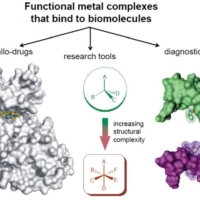Discovering new drugs is vital for fighting disease and improving health. One recent COST network, focused on developing new metal-based drugs, highlights the power of transnational collaboration to both advance vital scientific knowledge and foster the growth of individual researchers.
New medicines have the potential to offer patients improved quality of life, fewer side effects and, perhaps most importantly, longer life. And, while discovering new drug compounds is a complex process, recent scientific and technological advances have enabled a deeper understanding of cancer, infectious, and virus-related diseases at the molecular level.
Tapping into these advances, a transnational and multidisciplinary group of European scientists have made exciting progress in the field of drug discovery. Working as part of COST Action ‘Functional metal complexes that bind to biomolecules’, they focused on developing metal-based drugs interacting with different biomolecular ‘targets’. Divided into five working groups, the scientists sought to identify and validate new ways of designing molecules for therapy and imaging, as well as designing chemical probes to study the role of target proteins in health and disease mechanisms.
Professor Angela Casini was the project representative from the Netherlands, and a member of the working group that focused on the study of interactions between metal-based compounds with proteins, for applications in chemical biology and medicine.
As she explains, the funding she received from this COST Action greatly enhanced her scientific career. “It allowed me to consolidate my network of international collaborations in Europe, which is a fundamental requisite for an independent academic career,” she says. “It also allowed me to substantially increase my scientific output and contributed to several of my recent achievements.”
These achievements include being listed by Thomson Reuters as “one of the world’s most influential scientific minds” in Pharmacology and being nominated as an ‘Honorary Fellow’ at the prestigious Technical University of Munich. She believes these achievements helped her to secure her full professorship position at Cardiff University – a remarkable accomplishment, particularly as she was only awarded her PhD in 2004.
But this COST Action has not only benefited Professor Casini. As she explains: “More than 360 papers have been published acknowledging the Action, at least 150 of which are co-authored by at least two Action participants. The Action has fostered the careers of many early-career scientists by increasing their mobility, enhancing their training and providing a framework for highly interdisciplinary research.”
Plus, this network endorsed the ‘1st International Symposium on Clinical and Experimental Metallodrugs in Medicine: Cancer Chemotherapy’, held in Honolulu in December 2015.
Professor Casini was the co-Chair of this event, and several other members of the COST Action also participated by giving important scientific contributions at the meeting. “So, the topics of our COST Action were fully represented in this high profile event!” Professor Casini enthuses.
Having witnessed first-hand what can be achieved when researchers from different backgrounds and different countries come together to share knowledge and expertise, Professor Casini fervently encourages other academics – at all levels and across all disciplines – to engage in the COST Programme.

